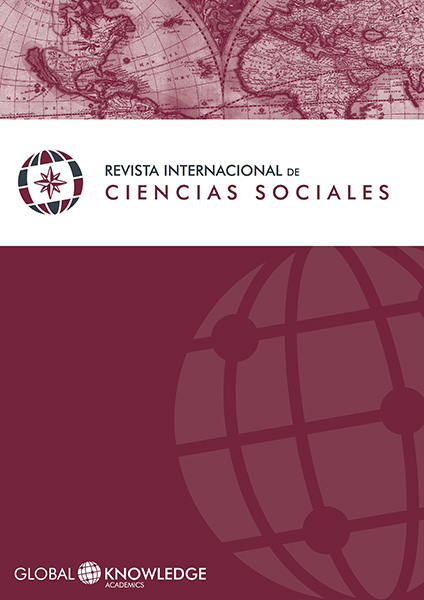The Theatre, a Therapeutic Process that Facilitates the Inclusion of Deaf People at the University
DOI:
https://doi.org/10.37467/gka-revsocial.v6.111Keywords:
Dramatherapy, Deaf, Inclusion, University, Game, MusicAbstract
The object of this article is to present the use of the game as therapy musical and theatrical (dramatherapy) for Deaf persons to find the playful and funny character of the therapy and also to facilitate their inclusion to the University. This is fundamental in the therapy and the exploration of the pleasure shared through the game, the meaning and creative progress of every Deaf person and his physical and emotional and playful participation within the group.
Downloads
Global Statistics ℹ️
|
878
Views
|
830
Downloads
|
|
1708
Total
|
|
References
Bacus, (1988) A. Bébé joue. Les jouets de l’enfant de l’enfant de la naissance à trois ans. Paris, Marabout.
Barker, C. (1977) Theatre Games. A New Approach to Drama training. Methuen Drama. U.K.
Chekhov, A. Tchekov (1961) par lui-même. Editions du seuil.
Daniels, M. (1997) Benedictine Roots in the Development of Deaf Education. Listening with the Heart.
Delaporte, Y. (2002) Les sourds, c’est comme ça ethnologie de la surdimutité. Paris. DOI: https://doi.org/10.4000/books.editionsmsh.4134
Di Francesca, S. (1972) Academic achievement test results of a national testioning programs for hearing–impaired students, United States, Spring (Series D, Nº 9).
Furth, H. G. (1996) Thinking Without Language. Pensamiento sin Lenguaje. Implicaciones psicológicas de la sordera. Madrid, Morata.
Gérard, D.(1997) Eléments de Musicothérapie: clinique, technique, formation. Dunod.
Grocke, D. Wigram, T. (2007) Receptive Methods in Music therapy: Techniques and clinical applications for Music Therapy Clinicians, Educators and Students. London .
Glickmann, N.S. and J. C. (1993) Measuring Deaf Cultural Identities: A Preliminary Investigation. Rehabilitation Psychology, vol 38. N. 4. DOI: https://doi.org/10.1037/h0080304
Gombert, J. Leybaert.(2005) J. L’acquisition du langage par l’enfant sourd. Marseille.
Groce, E., & Whiting, J. W. (1985). Everyone here Spoke Sign Language: Hereditary Deafness on Martha’s Vineyard (First ed.) Harvard University Press.
Harter, J. H. (2002) Le jeu : essai de déstructuration. Le Harmattan.
Harlan, L. (1996) Quand l’esprit entend. Histoire des Sourds muets. Paris.
Helen Keller. (2001) Sourde, muette, aveugle.
Jennings, S. (1994) The Handbook of Dramatherapy.
Jennings, S. (1995) Dramatherapy. Theory and Practice 2.
Jennings, S. (1997) Dramatherapy. Theory and Practice 3.
Langley, D. (2006) An Introduction to Drama Therapy. Sage. DOI: https://doi.org/10.4135/9781446218402
Lecoq, J. (1987) Le théâtre du geste. Paris.
Lichtenthal, P. (1839) Dictionnaire de Musique. Troupenas.
Lieff, B. (1980) Dancing without Music: Deafness in America.
Moores (1996) Educating the Deaf: Psychology, Principles and Practices. Houghton-Mifflin: Boston. Nuestro Compromiso Con La Diversidad, Serie Bicentenario, Política Nacional de Educación Especial Cong. (1995).
Spolin, V.(1985) A Directors Handbook.
Spolin, V. (1986) Theater games for the classroom. Teacher’s Handbook.
Stanislavski, C. (1984) La formation de l’acteur.
Tadeusz, G. (1994) Développement et éducation des enfants sourds et malentendants. Editions Presse Universitaires de France.
Trémel, J. (2001) Jeux de rôles, jeux vidéo, multimédia. Les faiseurs de mondes. Paris. DOI: https://doi.org/10.3917/puf.treme.2001.01
Trybus, R. & Karchmer, M. (1977) School achievement scores of hearing impaired children: National data on Achievement Status and Growth Patterns. American Annals of the Deaf.
Torres, P. (2000) Dramaterapia. Editorial cuarto propio.
Winnicot, D. (2002) Jeu et réalité. Paris.
Downloads
Published
How to Cite
Issue
Section
License
Those authors who publish in this journal accept the following terms:
-
Authors retain copyright.
-
Authors transfer to the journal the right of first publication. The journal also owns the publishing rights.
-
All published contents are governed by an Attribution-NoDerivatives 4.0 International License.
Access the informative version and legal text of the license. By virtue of this, third parties are allowed to use what is published as long as they mention the authorship of the work and the first publication in this journal. If you transform the material, you may not distribute the modified work. -
Authors may make other independent and additional contractual arrangements for non-exclusive distribution of the version of the article published in this journal (e.g., inclusion in an institutional repository or publication in a book) as long as they clearly indicate that the work was first published in this journal.
- Authors are allowed and recommended to publish their work on the Internet (for example on institutional and personal websites), following the publication of, and referencing the journal, as this could lead to constructive exchanges and a more extensive and quick circulation of published works (see The Effect of Open Access).













